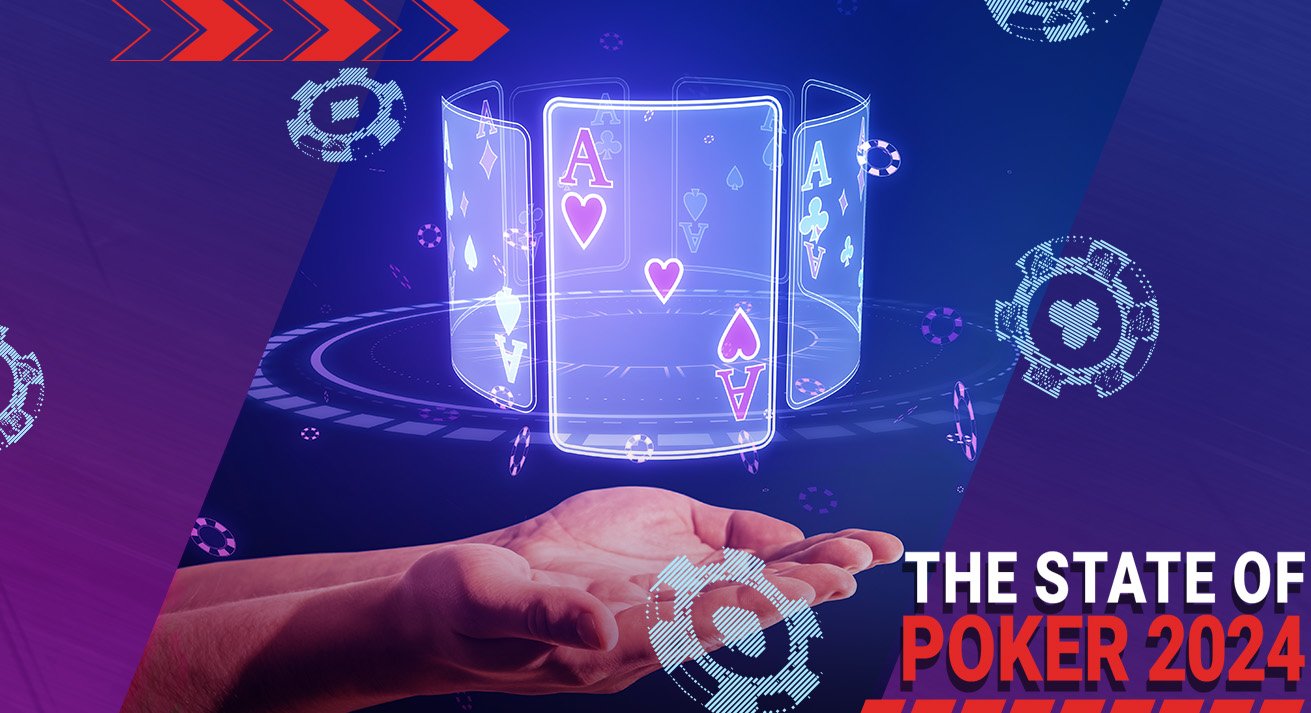Millions worldwide enjoy poker, which has always involved skill, strategy, and chance. In 2024, technology is transforming poker in many innovative ways, as virtual reality (VR) and artificial intelligence (AI) will totally change the game.
This article explores the link between poker and technology, previewing the impact of VR and AI on the poker gaming experience.
The Evolution of Poker in the Digital Age
Poker's evolution from high-stakes tables to online platforms has reduced barriers to playing the game globally. The internet's arrival in the late 1990s brought poker to millions, providing diverse stakes and formats. This accessibility led to a surge in popularity in the early 2000s.
In 2024, poker will undergo further change with the integration of VR and AI. VR provides an even more immersive casino experience, while AI refines strategy and player training. This change reflects the shift of poker from physical to digital. Innovative platforms like Twitch and collaborations with Everygame Poker showcase the game's development.
The Role of Virtual Reality in Poker
Virtual reality (VR) technology has transformed poker by allowing players to experience real-time interactions, read their opponents' body language, and engage with the game as if seated at a physical table.
The appeal of VR poker lies in its ability to increase player interaction and enjoyment. Poker VR platforms offer an immersive gaming experience, allowing players to create avatars, engage in voice chat, and experience realistic gestures. This makes for a more natural connection, similar to live casino play.
In 2024, VR technology will further enhance graphics and interactivity for more realistic and accessible poker experiences. As it becomes mainstream, VR's integration into poker will attract wider audiences and redefine existing gameplay.
Artificial Intelligence and Poker
Artificial intelligence (AI) has transformed poker, using complex algorithms and machine learning to enhance gameplay. AI systems analyze data to improve decision-making, giving players effective strategies and insights into their opponents' mindsets. Tools like PioSolver and PokerSnowie simulate scenarios, helping players improve their poker skills and understanding.
AI will significantly impact online poker as advanced bots test human players' analytical abilities. AI will also improve game security and identify fraud, guaranteeing fair play. However, many ethical questions about AI use and its effects on human beings will persist.
AI's role in poker is expected to expand, enhancing gameplay and driving industry growth, but balancing innovation with integrity is crucial for the future.
Integration of Technology in Poker Streaming
The integration of technology in poker streaming has transformed how audiences experience the game. Platforms like Twitch are central to this transformation, offering live games, interactive features, and real-time educational content. Streamers employ high-definition cameras, overlays, and statistics to create informative broadcasts.
The Everygame Heat Team and Everygame Poker have partnered to enhance viewer engagement and expand the game's reach through advanced tools for hand analysis and strategic insights.
As these technologies evolve, you can expect even further innovations in poker streaming, attracting a wider audience to the world of poker.
Future Trends in Poker Technology
In 2024, poker technology will see transformative trends beyond VR and AI, with Augmented Reality (AR) blending digital and physical worlds by overlaying real-time stats and player data to improve gameplay.
Blockchain technology and cryptocurrencies are set to revolutionize poker with secure, transparent transactions and decentralized platforms. This could streamline payments, maintain fairness, and reduce transaction costs.
5G connectivity will improve the online poker player experience with faster speeds, real-time interactions, biometric data integration, and haptic feedback technology.
These innovations aim to improve poker experiences with immersive, fair, and engaging options for both experienced and new players. However, they may also bring regulatory challenges and debates about the changing nature of the game.
The Challenges and Considerations of VR and AI Poker
The integration of VR and AI into poker presents advantages and disadvantages that will need careful management. Accessibility is a major concern, as the high costs of VR equipment and AI tools could create inequality among players. Preserving fairness will depend on somehow ensuring equal access to these innovations.
One significant challenge could be the loss of the human element in poker. Traditional skills like reading an opponent's body language could be lost in a digital environment, totally changing the game's essence and appeal.
To maintain player trust and ensure a level playing field, regulations about AI's role and the use of poker bots will be necessary. Data privacy and security measures will need to be improved to protect players' information.
All in all, while technology enhances poker with so many new possibilities, vigilant management will be essential to keeping the game's integrity, inclusivity, and appeal in the years ahead.
The Future of Poker: Balancing Innovation and Tradition
The arrival of technology such as virtual reality and artificial intelligence will reshape the poker world in 2024, with exciting innovations and new experiences for players.
The future of poker hinges on balancing innovation with tradition, protecting fair play, and maintaining the human essence of the game. As we look forward, it's important for players, regulators, and developers to cooperate in managing this brave new poker world. Stay informed of the latest tech advances at Everygame Heat Team and Everygame Poker, where tradition meets innovation.

